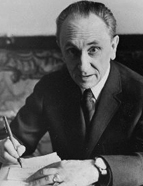

As with the História de Portugal [History of Portugal] , the challenges came from the external dangers that Ameal saw threatening Europe (in this case, the ‘American plutocracy’ and the ‘Slavic technocracy’ – Europa e os seus fantasmas [Europe and its ghosts] , 1945, p. 274). It was , therefore , necessary to recover the values of the West, which remained underlying despite the post-war dialectic: ‘ Today’s man is the same man whose defence, protection , and liberation have become even more pressing.’ (‘ O Ocidente e Portugal ’ [‘The West and Portugal’] , p. 193). And, bridging the gap with the Estado Novo [New State]’ s argument regarding its colonial territories, the capacity for entertaining a dialogue with the other that he saw in Portugal from the Expansion to the present day would prefigure a kind of model to follow in the defence of Western values: ‘Thus we can generate, throughout the Earth, other Portugals – fraternal communities between different races. [ … ] There is no exaggeration in saying that new centres of gravity of the West are also being created in our provinces of Africa, so full of promise – and in the enormous Brazil, linked to us in the fraternal community established by the two governments’ ( i dem , p. 188).
Notwithstanding his views on the need to reposition the historical vision, the reflections he made over the course of his life on the historian ’ s craft show a constant theoretical concern with issues of hermeneutics and the validity of sources. Ameal also mentions, at different times, the difficulty of detachment and total impartiality: ‘Historical work suffers, and cannot fail to suffer, from the formation of thought, even from the character of the historian [ … ]. History is not a pure science, since its central character is man – an autonomous being, endowed with free will – History is as unpredictable as the acts, decisions , and reactions of man himself’ ( Porque escrevi, [Why I wrote…] p. 34). But he also highlights the importance of erudition (so dear to traditionalist intellectual thought) when he argues that the historian is different from the researcher: for Ameal, the connection of facts (‘historical truth, first and foremost – that which makes it, in the strictest sense of the word, H istory’) requires the historian ’ s ‘subjective reasoning to extract new analogies from the inert loose ends in the documents’ ( i dem , pp. 34.37).
This work is financed by national funds through FCT - Foundation for Science and Technology, I.P, in the scope of the projects UIDB/04311/2020 and UIDP/04311/2020.
